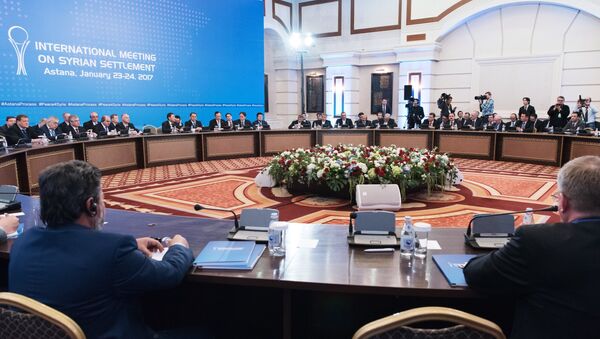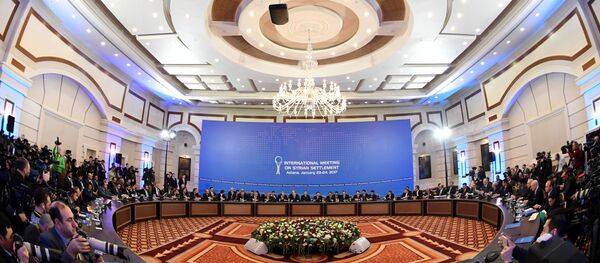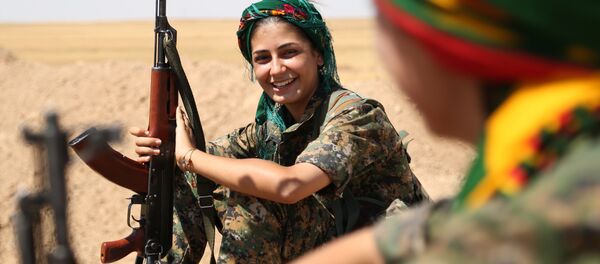ASTANA (Sputnik) — Parties to the fifth international meeting on Syria suggest that monitoring over de-escalation in Syria be conducted from two monitoring centers — Jordanian and Russian-Turkish, a source in one of the delegations told Sputnik.
"We expect that there will be two monitoring centers. One in Jordan, and the other one — partially in Turkey and partially in Syria. The first one would be Jordanian-Russian-US actually, and would be responsible for the southern de-escalation zone. In Turkey and Syria, the center would be Russian-Turkish," the source said.
"Depending on when the signing of the agreement on the de-escalation zones is reached, one should expect the adoption of specific actions to deploy the forces within two-three weeks," Lavrentyev told reporters.
The fourth meeting in Astana format in May was a breakthrough, as the three ceasefire guarantor states signed a memorandum on the establishment of four de-escalation zones in Syria. Monitoring over the de-escalation zones is now the main topic on the agenda of the fifth meeting in the Kazakh capital.
"Monitoring centers would exchange information and suggest measures to prevent violations, such as military disengagement, if necessary, under the Turkish and Russian control," the source added.
"Most likely, it will be first announced for three months with a possibility to prolong it in future. This is how the de-escalation zones and control over them would be implemented [on the ground]. If peace is established, divisions of guarantor states could be changed to the Syrian ones — those of the government and the opposition," the source said.
The source added that control over the northern de-escalation zones would be in Turkish and Russian hands, over the central zone — in Iranian and Russian hands, and over the southern zone — in Russian hands.
"An agreement on all de-escalation zones in Syria is almost reached," the official said.
The only zone that has not been coordinated yet is the southern one, he added.
"Anyway, it will be discussed later," he said.
Defining the exact borders of the four de-escalation zones and the monitoring procedures are the main issues on the agenda at the fifth international meeting on Syria currently held in Astana.
"The [final] declaration will have a provision on the National Reconciliation Committee. It will be formed out of representatives of the Syrian authorities and local respected people, elder statesmen. The committee would focus on all domestic issues, including security. It will be a solely Syrian thing, without anyone's mediation," the source said.
"All parties agree on the idea of creating such a committee. There were some concerns over the implications for the Geneva process, but they have been resolved," the source added.
The Russian delegation head to the Astana talks on Syria, Alexander Lavrentyev, said Tuesday said he expected the delegations to adopt a document on establishment of a joint coordination center on monitoring of the situation in the de-escalation zones in Syria.
The sides to the Astana talks on Syria are also working on documents relating to release of prisoners and demining of historic sites, he added.








